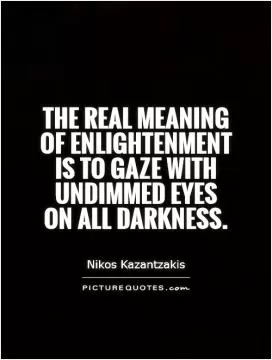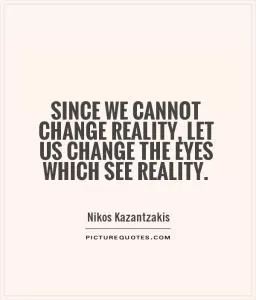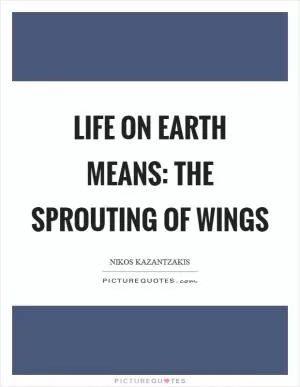A person needs a little madness, or else they never dare cut the rope and be free

A person needs a little madness, or else they never dare cut the rope and be free
Nikos Kazantzakis, the renowned Greek writer and philosopher, was a firm believer in the power of madness to liberate the human spirit. In his works, he often explored the idea that in order to truly break free from the constraints of society and achieve greatness, one must embrace a certain level of madness.Kazantzakis believed that madness was not necessarily a negative trait, but rather a necessary component of creativity and self-discovery. He saw madness as a force that could push individuals to think outside the box, challenge societal norms, and pursue their dreams with unwavering determination.
In his novel "Zorba the Greek," Kazantzakis introduces the character of Alexis Zorba, a larger-than-life figure who embodies the spirit of madness and freedom. Zorba is a man who lives life to the fullest, unafraid to take risks and follow his passions wherever they may lead. He encourages the protagonist, a reserved and intellectual man, to embrace his own madness and break free from the constraints of his conventional life.
The quote "A person needs a little madness, or else they never dare cut the rope and be free" encapsulates Kazantzakis' belief that in order to truly be free, one must be willing to let go of the safety and security of the known and venture into the unknown. Cutting the rope symbolizes breaking free from the ties that bind us, whether they be societal expectations, fear of failure, or self-doubt.
Kazantzakis himself lived a life that was marked by a willingness to embrace madness and take risks. He was a prolific writer who tackled controversial subjects and pushed the boundaries of conventional thinking. His most famous work, "The Last Temptation of Christ," was met with widespread criticism and condemnation, yet Kazantzakis remained steadfast in his belief that it was important to challenge established beliefs and explore new ideas.












 Friendship Quotes
Friendship Quotes Love Quotes
Love Quotes Life Quotes
Life Quotes Funny Quotes
Funny Quotes Motivational Quotes
Motivational Quotes Inspirational Quotes
Inspirational Quotes